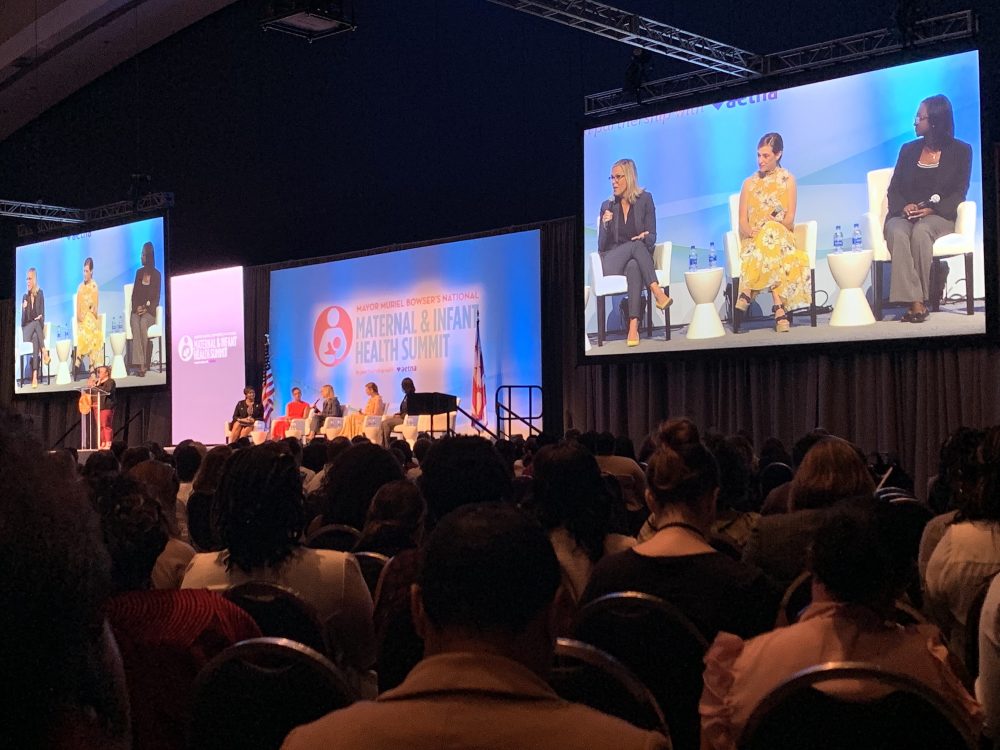WASHINGTON – Racial disparities in health care in America continues to present much greater health risks to black women and babies, according to participants at the National Maternal and Infant Health Summit.
More than 700 women die each year due to preventable complications during pregnancy or childbirth in the United States, with mortality rates proving to be disproportionately higher among Black women than for other races.
The Centers for Disease Control and Prevention reported last week that pregnancy-related deaths for black women, as well Native American women, was four to five times higher than that for white women.
“It is on all of us – whether we’re a man or a woman, whether we have children or never plan to, regardless of our race,” summit host and Washington Mayor Muriel Bowser said Tuesday. “We all have a role to play in turning this crisis around.”
The summit was created last year to raise public awareness about the challenges that mothers, infants, and families face throughout all stages of childbirth, as well to focus on potential policy changes.
This year’s program brought together elected leaders, healthcare experts, early education professionals, policy makers, and Washington area residents. Racial disparities were a major theme of the summit.
“When America fails black mothers, it fails the backbone of the black community, the primary educators of our children… and it fails the generations to come.” said David Hinson, president of the Congressional Black Caucus Foundation.
The summit was a kick-off for the caucus’s annual legislative conference, a week-long event focused on health, education and business policies as well as civic engagement aimed at improving the wellness of the black community.
“If there is a policy that restricts black women – in fact, all women – from the health care they need and deserve, we will change that policy,” Hinson said. “And if there’s an obstacle to women living lives…free of pain and suffering, then we will remove that obstacle.”
Panels covered the challenges of motherhood, early education, the significance of food and nutrition, and the parenting roles of men and fathers.
Speakers, panelists and attendees were also encouraged to share personal stories of disparities they experienced related to childbirth and the process around it.
Dr. Esther Gamuchirai Madzivire, an OB/GYN for Atrium Health in North Carolina, said her medical difficulties surrounding the births of her two children, both premature, were compounded by insensitive comments from medical personnel about the problems she would face as a mother who gave birth prematurely.
“I had the education and the resources… and yet I still fell into judgment,” Madzivire said.
She recalled a time when her then-infant daughter was in the intensive-care unit, when she asked what formula her daughter would need, and the response was “Why? It’s not like that’s going to cover it anyway.”
“Why are we shaming someone who’s looking for help?” Madzivire said.
This and similar experiences are what fueled the duration of the summit and it’s overall goal to address the implicit and explicit problems regarding the health care of mothers and children
Stacy Stewart, president and CEO of the March of Dimes, said “we are facing an urgent maternal health crisis,” and the sharing of stories, statistics and experiences would “surface the facts” that can effect change.

